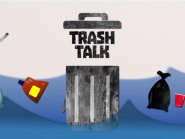Citizen Science Marine Debris Monitoring in the Olympic Coast National Marine Sanctuary
The NOAA Marine Debris Program has partnered with the Olympic Coast National Marine Sanctuary to monitor marine debris in the Sanctuary.
Type of Project: Marine Debris Monitoring
Region: Pacific Northwest
Project Dates: June 2012 - December 2017
Who is involved?
The Olympic Coast National Marine Sanctuary (OCNMS) and the NOAA Marine Debris Program have partnered to engage citizen scientists in collecting baseline information on the occurrence of marine debris within the OCNMS as part of the Marine Debris Monitoring and Assessment Project (MDMAP).
What is the project and why is it important?
Marine debris is a global problem that impacts marine life, damages marine habitats, impedes navigation, impacts our economy, and is a risk to human health and safety. Although we continue to learn more and more about marine debris, there are still many unanswered questions. These include unknowns such as which types of debris are most common in a certain area? Or, how is the problem of marine debris changing over time, and are our efforts to prevent debris effective? The Marine Debris Monitoring and Assessment Project (MDMAP) helps answer these questions and others by collecting baseline data. The data collected through this project can be used to evaluate the impacts of marine debris along our coastlines and can help inform future marine debris mitigation and prevention efforts on a local, regional, and national scale.
The OCNMS has been conducting informal shoreline marine debris monitoring since 2001 and began conducting shoreline surveys with trained citizen scientists as part of the MDMAP in June 2012. The OCNMS and their dedicated network of volunteers monitor up to 15 sites each month using the accumulation survey methodology outlined in the NOAA marine debris shoreline survey protocol documents. Monthly accumulation surveys take a lot of work, so trained citizen scientists and OCNMS staff team up with local community groups and schools to conduct the surveys. This offers an opportunity to provide education and outreach to the community, in addition to collecting data and cleaning up marine debris.
For more on this project, check out the Marine Debris Clearinghouse.



